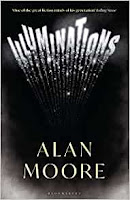"The politics of relief pursued by Bolton’s Labour Party left little scope for recognising workers ... as individuals with ambitions and aspirations. By contrast, Conservative candidates in Bolton mobilized a politics of experience, rooted in place, which enabled them to speak in more respectful, empathetic terms. Where Labour referred to the "unfortunate unemployed," Conservative candidates discussed the "evil of unemployment," refusing to define local workers by their current circumstances, instead addressing them as "men and women out of work". Research into Labour politics in the Bolton of the 1930s by Rebecca Goldsmith has contemporary resonance.
The Lost Rainforests of Britain by Guy Shrubsole is reviewed by Richard Smyth: "His enthusiasm is catching (at least at first): you can’t read without wanting to have a wander yourself through these dripping microclimatic wonderlands, among trees ‘heavily garlanded with beardy lichens’, the ‘spreading filigree of liverworts’ and the ‘translucent fronds’ of polypody ferns."
mudlark121, on Past Tense blog, remembers the campaign against another oil refinery on Canvey Island: "On Saturday 19 May 1973, 700 Canvey Islanders organised an 'oil-mada', hundreds travelling by ship, boarding the boat at Tilbury, with banners and posters and ‘graveyard’ crosses, sailing up the Thames, to put hand a protest letter to the prime minister at 10 Downing Street."
Alan Moore is interviewed by Miles Ellingham about his new book of short stories: "Take Northampton: we had mammoth hunters here, we had Romans, we were the centre of the country in terms of how the Saxons saw things. We had the Normans, but we fell out of favour because of Hereward the Wake, a local terrorist who used to be one of the great English legendary heroes when I was growing up."
Miles Malleson is remembered, if at all, as a bit-part player in British films. But, says Graham McCann, he should be remembered as a committed Communist organiser and a sex pest too.

Well, I never knew all that about Miles Malleson. But I would add to Graham McCann's characterisation a memory of a French master in grammar school telling us boys (who were certainly familiar with his screen appearances) that Malleson should be given more credit for bringing French drama, classical and modern, to the English stage.
ReplyDeleteThank you, I'll look into this.
ReplyDelete